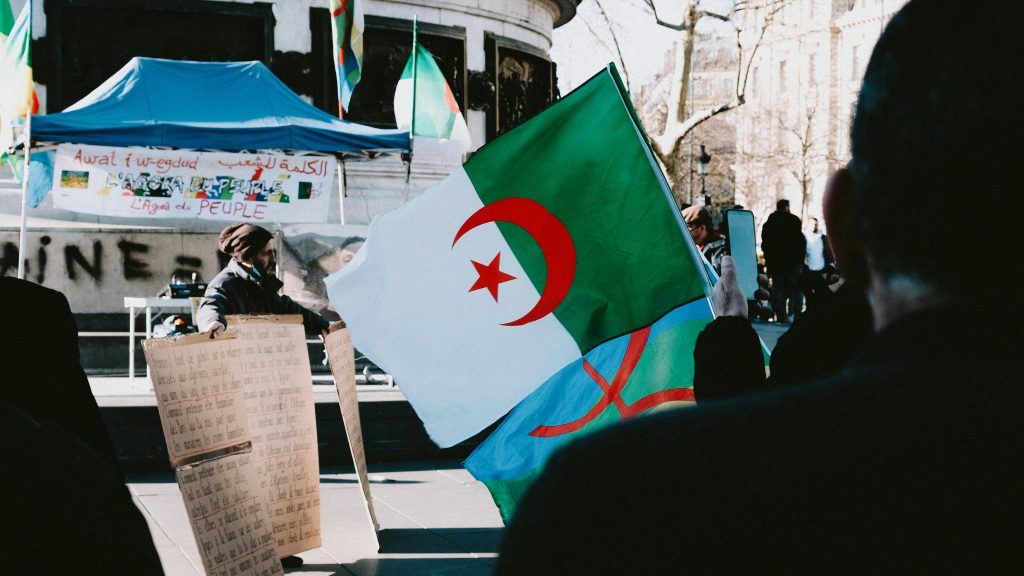UK backs Morocco’s plan for disputed Western Sahara
3 min read
In a major policy shift, the UK now supports Morocco’s autonomy plan for Western Sahara, linking it to World Cup investment deals.

In a major policy shift, the UK now supports Morocco’s autonomy plan for Western Sahara, linking it to World Cup investment deals.
The United Kingdom has announced its support for Morocco’s proposal to resolve the long-standing dispute over Western Sahara, breaking with decades of neutrality and aligning itself with a growing number of Western nations. The move is tied to strategic business deals ahead of the 2030 FIFA World Cup, which Morocco will co-host alongside Spain and Portugal.
UK Foreign Secretary David Lammy made the announcement during a visit to Rabat, where he described Morocco’s autonomy plan as “the most credible, viable, and pragmatic basis for a lasting resolution of the dispute.” The plan would grant Western Sahara autonomy under Moroccan sovereignty, a proposal that has existed since 2007 but has never been formally negotiated with the Sahrawi people.
Western Sahara, a mineral-rich former Spanish colony, has been at the center of one of Africa’s longest-running territorial conflicts. Morocco controls most of the 100,000-square-mile territory, while the Polisario Front—an armed independence movement backed by Algeria—claims it as the homeland of the Sahrawi people and seeks full independence.
Historically, the UK had maintained a neutral stance on the issue, supporting the UN’s position that the status of Western Sahara was “undetermined” and advocating for a referendum on self-determination. But Lammy’s announcement marks a clear pivot in British foreign policy.
“Thanks to our work, British companies will be front of the queue to secure contracts to build Moroccan infrastructure,” Lammy said. “British businesses will score big on football’s biggest stage.”
Deals Tied to 2030 World Cup and Business Access
In Rabat, Lammy signed several agreements that will allow UK businesses to invest in key Moroccan infrastructure projects in preparation for the 2030 men’s World Cup. These include upgrades to Casablanca’s airport and new developments in the health sector. A procurement deal between the two countries will also give British companies greater access to public contracts in Morocco.
The UK Foreign Office said the agreements will establish “a unique foundation for UK companies to access public tenders in Morocco.” British diplomats indicated that support for Morocco’s plan was contingent upon these business arrangements and on Morocco’s renewed commitment to the principle of self-determination, along with a pledge to publish a revised version of the autonomy proposal and resume negotiations.
Regional Reactions and Diplomatic Shifts
Morocco’s Foreign Minister, Nasser Bourita, welcomed the UK’s shift, calling it a historic turning point in an 800-year-old relationship between the two nations. “It represents a genuine pivot toward a definitive resolution of the dispute,” he said.
However, Algeria, a staunch supporter of the Polisario Front, expressed regret over the UK’s decision. It criticized the autonomy proposal as outdated and unrepresentative of Sahrawi interests, noting it had never been presented to them as a basis for formal talks.
The African Union recognizes Western Sahara as an independent state, but in recent years, several countries—including the United States, Spain, France, Germany, and the Netherlands—have backed Morocco’s position. The UK’s announcement adds another powerful voice to this trend.
The Stalemate and the Missing Referendum
Since the 1990s, various ceasefires have failed to resolve the territorial dispute. The United Nations has maintained a peacekeeping force in the region since 1991, with the intention of holding a referendum to let the people of Western Sahara choose between independence or integration with Morocco. However, that referendum has never materialized.
Despite renewed international backing for Morocco’s autonomy proposal, critics argue that any long-term solution must involve the voices and consent of the Sahrawi people.
Still, Lammy emphasized that the UK’s position does not exclude self-determination, pointing to language in the joint communiqué reaffirming respect for that principle and the peaceful settlement of conflicts.
WhatsApp us